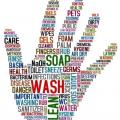Animal Health Certificates (AHC)
Whilst we appreciate it is far from most people's minds at the moment, it is important you are aware that the regulations for travel to Europe and Northern Ireland are changing from 1st January 2021.
Under new 'Part 2 listed status', your current UK (Euro) pet passport will NO LONGER BE VALID to travel to Europe or Northern Ireland.
Instead, a pet will need a SINGLE-USE AHC. This document will be valid for a single-journey into Europe and must be issued within 5-10 days of travel to a specified location.
You can read more here:
https://www.gov.uk/…/pet-travel-to-europe-from-1-january-20…
Please note, this would affect any travellers with pets arriving in an EU Member State after 23:00 GMT on the 31 December 2020. This will also apply to travel Northern Ireland.
Please contact the surgery, or preferably e-mail us at info@capontreevets.co.uk, if you have any questions. This update is all very new to us too and as yet we do not have full information or pricing available. Also please bear in mind that we are very busy so it may take some time to get back to you.

